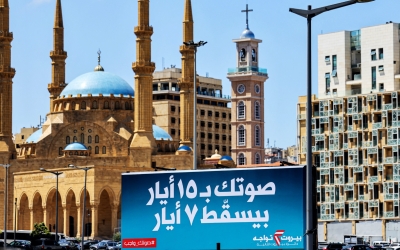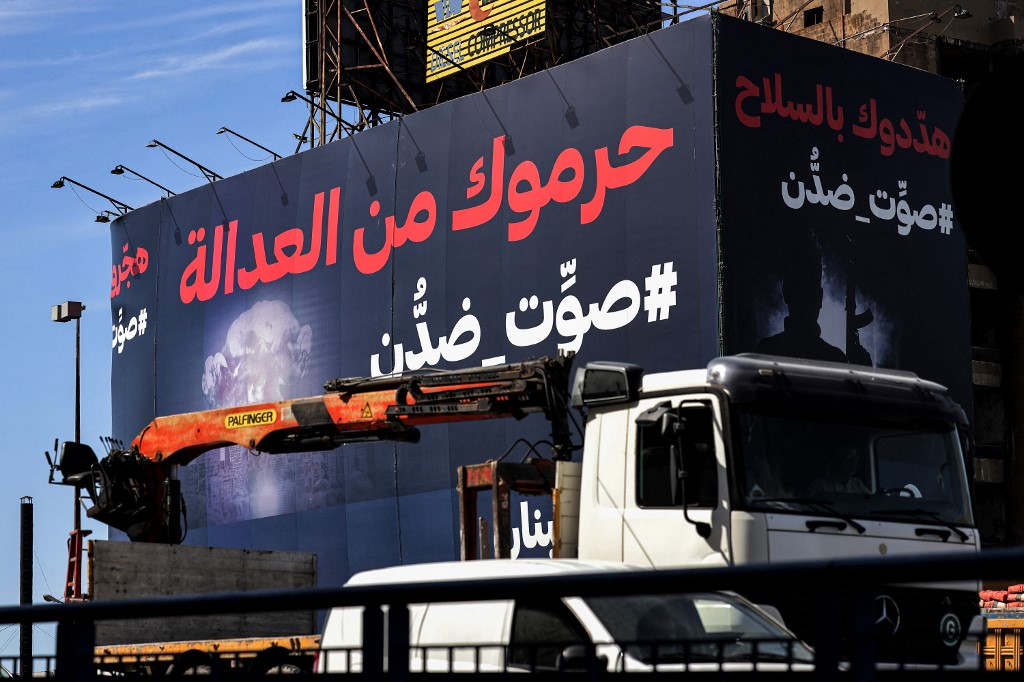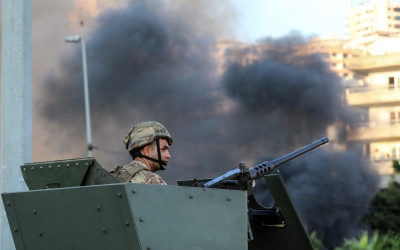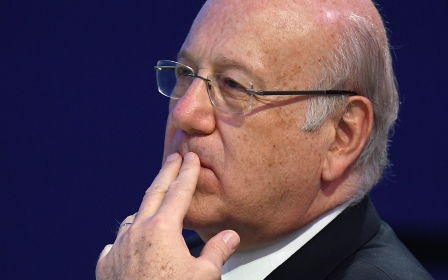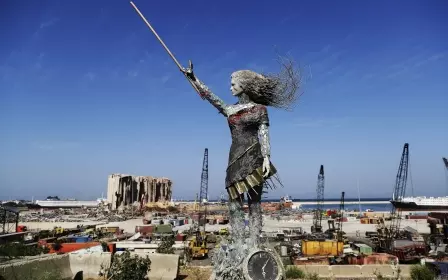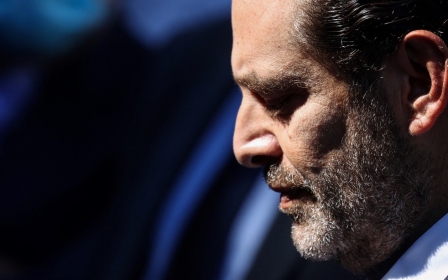Lebanon elections: Why hopes for change may be dashed
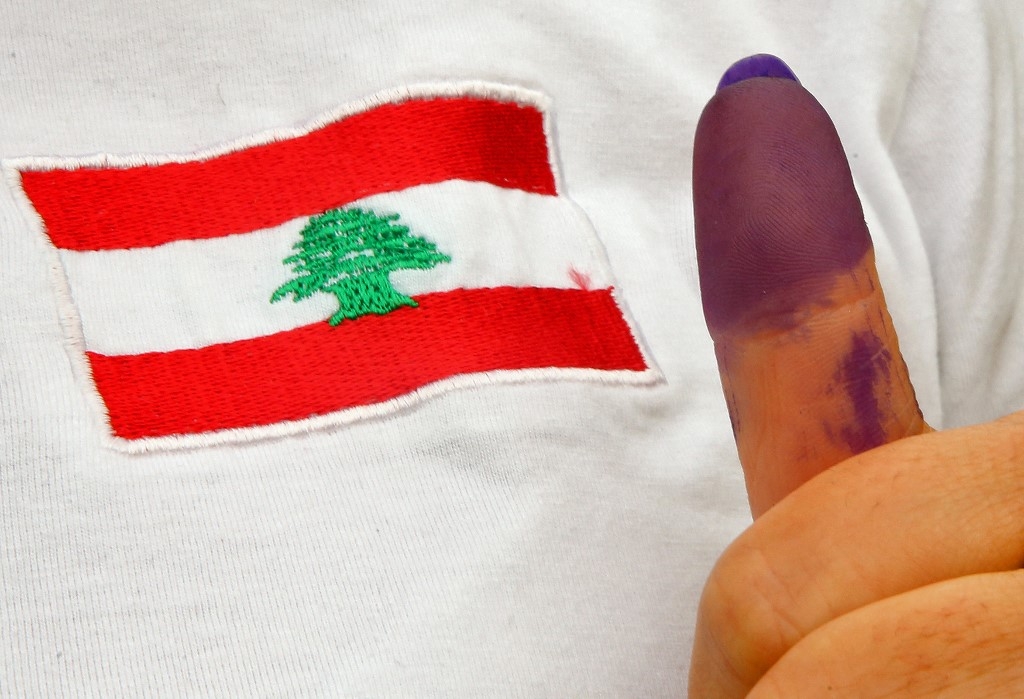
“Change” has become a major theme ahead of Lebanon’s upcoming parliamentary elections. Highway billboards, television screens and social media platforms are filled with talk of change via the ballot box.
This is the first national election to take place since the 2019 uprising and ensuing socioeconomic collapse. Without a serious change in government, there is little hope of recovery.
A large number of new candidates self-identify as “forces of change”, presenting themselves as serious alternatives to the status quo. But meaningful change, beyond a shift in the power balance among sectarian forces, is a far-fetched notion. Rather, elections are likely to legitimise governing forces and expose the weakness of radical alternatives.
In most capitalist countries, such dire conditions lead to immediate state intervention and a surge in socialist politics. Not so in Lebanon
The reasons are many, ranging from the electoral system and voting practices, to the programmes advertised by these “forces of change”, to foreign intervention. Failing to take these factors into account will create false hope and delay real change.
Lebanon’s current electoral law came into effect in 2018. Back then, the longstanding first-past-the-post system was replaced by proportional representation, which was supposed to grant a voice to marginalised political groups - particularly those outside of traditional sectarian blocs. It was also supposed to encourage party politics based on programmes, rather than personal politics based on individual loyalties.
New MEE newsletter: Jerusalem Dispatch
Sign up to get the latest insights and analysis on Israel-Palestine, alongside Turkey Unpacked and other MEE newsletters
The law, however, was tailored to fit Lebanon’s sectarian and parochial politics. A preferential vote was introduced at the local district and sectarian quotas were preserved. A complicated formula is used to select winners. As a result, proportional representation was reduced to a bazaar of vote sharing. Durable political alliances based on a common vision of change were replaced by temporary electoral coalitions.
Economic reform
The majority of opposition groups are guilty of this opportunism. In the current race, most “forces of change” lists were cobbled together at the last minute for electoral convenience. In many cases, even a semblance of unity has failed to materialise. As a result, electoral lists identified with “forces of change” are more numerous than lists formed by powerful governing forces.
The low threshold to secure a parliamentary seat might grant some of these candidates a win, but such gains should not be confused with representing a wide social base. Even if a substantial number cross the finish line, their outlook for economic reform is unlikely to generate much change.
Lebanon’s financial collapse, including ongoing currency devaluation, has led to large-scale impoverishment, forced economic migration, a plunging GDP, and prolonged cuts to basic services such as electricity, water, healthcare and education.
In most capitalist countries, such dire conditions lead to immediate state intervention and a surge in socialist politics. Not so in Lebanon. More than two years after the collapse, not a single step has been taken to restructure the banking sector, stop capital flight, or restore currency stability. Not a single high-ranking public or private figurehead, including Central Bank Governor Riad Salameh, has been held accountable for the losses incurred.
Quite the opposite. The oligarchy of private bankers, monopoly merchants and sectarian leaders continues to push for policies that pass on financial losses, estimated at $70bn, to the middle and working classes. These policies include currency devaluation and calls to appropriate revenues of state assets. The oligarchy also continues to solicit foreign financial aid, both from international donors and expatriate communities, as long as it does not require any sacrifice on its own behalf.
Negligible impact
Most “forces of change” speak ill of the oligarchy and sectarianism. They do not spare the state either: at worst, the state itself is blamed for Lebanon’s bankruptcy. At best, and with rare exceptions, calls for state intervention are minimalist. They are about safeguarding individual rights, such as forcing banks to pay back depositors, modest progressive taxation, or vague visions of supporting a productive economy.
The free-market foundations that led to uneven economic activity and reckless financial policies are rarely questioned. Socialism remains taboo, often replaced by the term “social justice”. Intervention by the International Monetary Fund (IMF) is either welcomed or mildly opposed, despite the austerity it requires. Privatisation, or public-private partnership, is peddled as a remedy for government corruption and public sector inefficiency.
In short, there is nothing revolutionary about these groups’ economic plans. They are reformist of the conservative stripe. If “forces of change” constitute a minority bloc in the next parliament, their economic impact would be negligible. This is more so given that the major political powers are in agreement on protecting the economic status quo. Consequently, the IMF and other foreign actors, in negotiations with the oligarchy, will determine the post-electoral roadmap for recovery or ruin.
Meanwhile, such a parliamentary minority would have a bigger say in matters over which there is disagreement between the major power blocs. The most obvious is the upcoming presidential election, which is tied to questions of foreign policy and geopolitics. This is where foreign interest in the elections lies, rather than any presumed concern for the wellbeing of the Lebanese people.
Change on the scale required in Lebanon is rarely achieved via the ballot box
If there is one change that the US and Saudi Arabia are betting on for this election, it is overturning the majority held by Hezbollah and its allies in parliament. While the Saudis are trying to create an alternative Sunni leadership to replace their estranged ally, Saad Hariri, the Americans, with European collusion, are focused on cultivating their own secular version of the opposition.
Both foreign actors are using coercion to get what they want: The Saudis have vetoed substantive Gulf aid and blocked Lebanese exports, while the US has conditioned Lebanese importation of electricity or extraction of offshore oil on normalising with Israel.
Foreign policy challenges
Foreign intervention does not exonerate domestic actors for their complicity, ineptitude and corruption in managing the economy. But foreign meddling is real and cannot be dismissed. Parliament is not a municipal council. Once in parliament, “forces of change” will have to confront foreign policy challenges if they are serious and mature about effecting change.
Yet, most “forces of change” candidates are weak on foreign policy. This is not an accident. The majority hail from civil society. They speak the NGO language of citizen rights, rule of law and good governance.
When foreign policy is discussed, the prevalent position among the most vocal “forces of change” is some variation on the neutrality of Lebanon. Historically, Lebanese neutrality was a codeword for right-wing and pro-western policies that opposed armed resistance against Israel. This is still the case. In the past, the problem was Palestinian factions; today, it is Hezbollah’s arms.
Blanket opposition to foreign intervention will not resolve the question of who is willing to supply strategic arms to Lebanon’s military, if creating a national resistance to Israel is truly the objective of disarming Hezbollah. Nor will it address strategies to open up foreign markets in the face of boycotts by Arab Gulf states, or even to organise the domestic labour market in a country largely run on the backs of foreign workers.
These complications are a reminder that change on the scale required in Lebanon is rarely achieved via the ballot box. The rush by protesting groups to participate in a flawed and sectarian electoral process with limited horizons raises legitimate concerns about their motivations. Do they view parliamentary power as a means to change, or are slogans of change a means to parliamentary power?
The views expressed in this article belong to the author and do not necessarily reflect the editorial policy of Middle East Eye.
Middle East Eye delivers independent and unrivalled coverage and analysis of the Middle East, North Africa and beyond. To learn more about republishing this content and the associated fees, please fill out this form. More about MEE can be found here.



